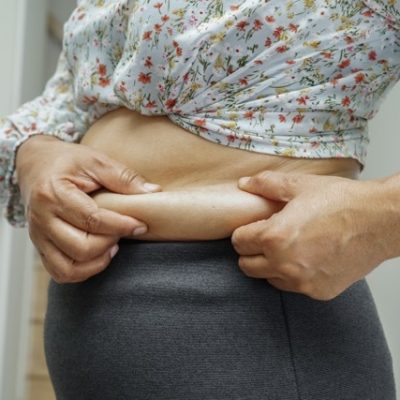
Rising obesity levels may intensify menopause symptoms and reduce hormone therapy efficiency, preliminary study indicates
The global surge in obesity, with an estimated 13% of adults now grappling with the condition, is a growing concern. A recent report suggests that obesity prevalence is higher among women than men (15% vs. 11%), with a more pronounced incidence in developed nations. Particularly in the United States, data from the Centers for Disease Control and Prevention (CDC) reveals that in 2020, 41.9% of individuals aged 20 and over were categorised as having obesity.
The far-reaching health implications of obesity are well-documented, encompassing a higher propensity for heart attacks, strokes, type 2 diabetes, respiratory ailments, and musculoskeletal issues.
A nascent study unveils a potential additional concern: obesity might amplify the severity of menopausal symptoms and compromise the effectiveness of hormone therapy aimed at alleviating these symptoms. The study’s lead author, Dr. Anita Pershad from the Eastern Virginia Medical School, shared her insights stating, “The core inference from our study is that obesity might exacerbate a woman’s menopausal symptoms while concurrently diminishing the relief provided by hormone therapy (HT).”
However, Dr. Kara McElligot, a NAMS-certified menopause practitioner and medical advisor at Mira, underscored the preliminary nature of this investigation, which encompassed a mere 119 participants and was executed retrospectively via chart review, thus inheriting a higher risk of bias.
The research, though yet to be peer-reviewed, was showcased at the 2023 Annual Meeting of The Menopause Society in Philadelphia, held between September 27 and 30. The study, spanning five years, meticulously reviewed the medical records of 119 women visiting a menopause clinic. These women were segregated into two cohorts based on their Body Mass Index (BMI)—those with a BMI above 30 were categorised as having obesity, while those below this threshold formed the other group.
The evaluation revealed no substantial disparity between the groups concerning age, the extent of menopause, hormone therapy utilisation, and acceptance. However, a significant finding emerged: women with obesity exhibited a higher propensity to report symptoms such as vasomotor symptoms (hot flashes), genitourinary/vulvovaginal symptoms, mood fluctuations, and diminished libido.
Dr. Sherry Ross, a seasoned OB/GYN at Providence Saint John’s Health Center in Santa Monica, elucidated a plausible cause, positing that women with obesity might experience intensified hot flashes and night sweats as fatty tissues could act as insulators, retaining heat within the body. Another theory proposes that obesity might trigger hormonal imbalances, thus engendering elevated oestrogen levels which, in turn, could exacerbate menopausal symptoms.
Dr. Ashley Parr, D.O., OB/GYN at The Women’s Hospital at MemorialCare Saddleback Medical Center, concurred with this notion, adding that the oestrogen-producing capability of fat cells could potentially alter the hormonal equilibrium of women with obesity during menopause, even post the cessation of ovarian function.
Moreover, the research identified a diminished likelihood of symptomatic relief post systemic and/or localised hormone therapy among women with obesity, compared to their counterparts without obesity. Dr. Pershad disclosed ongoing inquiries into the ambiguous efficacy of hormone therapy among women with obesity.
She further discussed exploring alternative designs and administration routes to potentially enhance hormone therapy effectiveness. Concurrently, Dr. Parr highlighted that obesity-associated risks for other health conditions like heart disease and breast cancer could deter the choice of hormone replacement, prompting considerations for non-hormonal treatment alternatives such as SSRIs, SNRIs, and vaginal oestrogen based on the specific symptoms sought to be addressed.
Dr. McElligot delineated the conceivable reasons behind the diminished effectiveness of hormone therapy in women with obesity, referring to various factors influencing the severity and experience of oestrogen deficiency, with obesity being a prime contender. She also brought attention to liver drug metabolism studies that reveal variations in circulating drug quantities based on BMI among adults, shedding light on the possible need for revising hormone therapy dosing recommendations to cater to the distinct metabolic dynamics presented by obesity.



